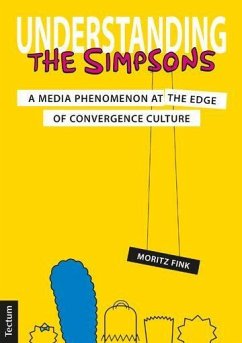Conceived as a renegade TV show in the late 1980s, "The Simpsons" has become one of the most long-lasting and all-pervasive media phenomena in American television history. More than twenty-five years after its television debut, the "Simpsons" series may be beyond its prime; in the realm of popular culture, however, the yellow cartoon characters continue to represent strong cultural currency. In an accessible way, "Understanding 'The Simpsons'" traces the show's origins, analyzes its complex position in-between commercial and alternative culture, and examines its role in today's ludic media environment. Drawing on numerous illustrative examples from the series and the paratextual realm that surrounds it, Moritz Fink puts "The Simpsons" in the timely context of transmedia relationships and convergence culture. From this perspective, "Understanding 'The Simpsons'" demonstrates that the significance of Homer and Co. lies less in their economic persistence than in their permanent cultstatus.
Bitte wählen Sie Ihr Anliegen aus.
Rechnungen
Retourenschein anfordern
Bestellstatus
Storno








